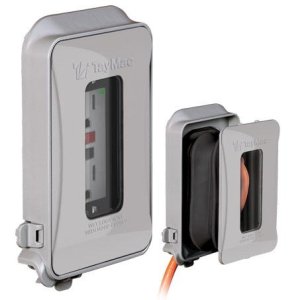Untraceable
Babbling Farker
- Joined
- May 19, 2011
- Location
- EAD
Any cost advantage other than an adapter plug on an extension cord to run 30amp into a trailer instead of 15amp? Dont forsee running anything more than a coffee maker/blender/lights/stereo/fans currently.
Found some good power inlets for rubes doing the same type of thing this spring
[ame="http://www.amazon.com/gp/product/B002QALLOQ/ref=ox_sc_act_title_2?ie=UTF8&psc=1&smid=ATVPDKIKX0DER"]Amazon.com: ParkPower 150BBIW.RV 15 Amp Power Inlet, White: Automotive@@AMEPARAM@@http://ecx.images-amazon.com/images/I/31hbEdxP-8L.@@AMEPARAM@@31hbEdxP-8L[/ame]
[ame="http://www.amazon.com/NOCO-Genius-GCP1-Black-125V/dp/B009ANV81S/ref=pd_sim_auto_2?ie=UTF8&refRID=05BA8JJFCYGY0CBP9135"]Amazon.com: NOCO Genius GCP1 Black 13 Amp 125V AC Port Plug: Automotive@@AMEPARAM@@http://ecx.images-amazon.com/images/I/51gMZpJNDZL.@@AMEPARAM@@51gMZpJNDZL[/ame]
[ame="http://www.amazon.com/ParkPower-301ELRV-Power-Inlet-Stainless/dp/B000E3V9R6/ref=pd_sim_auto_13?ie=UTF8&refRID=1Z6166D4DSAQD5JVYC3Z"]Amazon.com: ParkPower 301ELRV 30A Power Inlet, White with Stainless Steel Trim: Automotive@@AMEPARAM@@http://ecx.images-amazon.com/images/I/31KXWtWbwnL.@@AMEPARAM@@31KXWtWbwnL[/ame]
Thanks
Im assuming the BBQ answer is to run 30 to the box.
Found some good power inlets for rubes doing the same type of thing this spring
[ame="http://www.amazon.com/gp/product/B002QALLOQ/ref=ox_sc_act_title_2?ie=UTF8&psc=1&smid=ATVPDKIKX0DER"]Amazon.com: ParkPower 150BBIW.RV 15 Amp Power Inlet, White: Automotive@@AMEPARAM@@http://ecx.images-amazon.com/images/I/31hbEdxP-8L.@@AMEPARAM@@31hbEdxP-8L[/ame]
[ame="http://www.amazon.com/NOCO-Genius-GCP1-Black-125V/dp/B009ANV81S/ref=pd_sim_auto_2?ie=UTF8&refRID=05BA8JJFCYGY0CBP9135"]Amazon.com: NOCO Genius GCP1 Black 13 Amp 125V AC Port Plug: Automotive@@AMEPARAM@@http://ecx.images-amazon.com/images/I/51gMZpJNDZL.@@AMEPARAM@@51gMZpJNDZL[/ame]
[ame="http://www.amazon.com/ParkPower-301ELRV-Power-Inlet-Stainless/dp/B000E3V9R6/ref=pd_sim_auto_13?ie=UTF8&refRID=1Z6166D4DSAQD5JVYC3Z"]Amazon.com: ParkPower 301ELRV 30A Power Inlet, White with Stainless Steel Trim: Automotive@@AMEPARAM@@http://ecx.images-amazon.com/images/I/31KXWtWbwnL.@@AMEPARAM@@31KXWtWbwnL[/ame]
Thanks
Im assuming the BBQ answer is to run 30 to the box.
Last edited:




